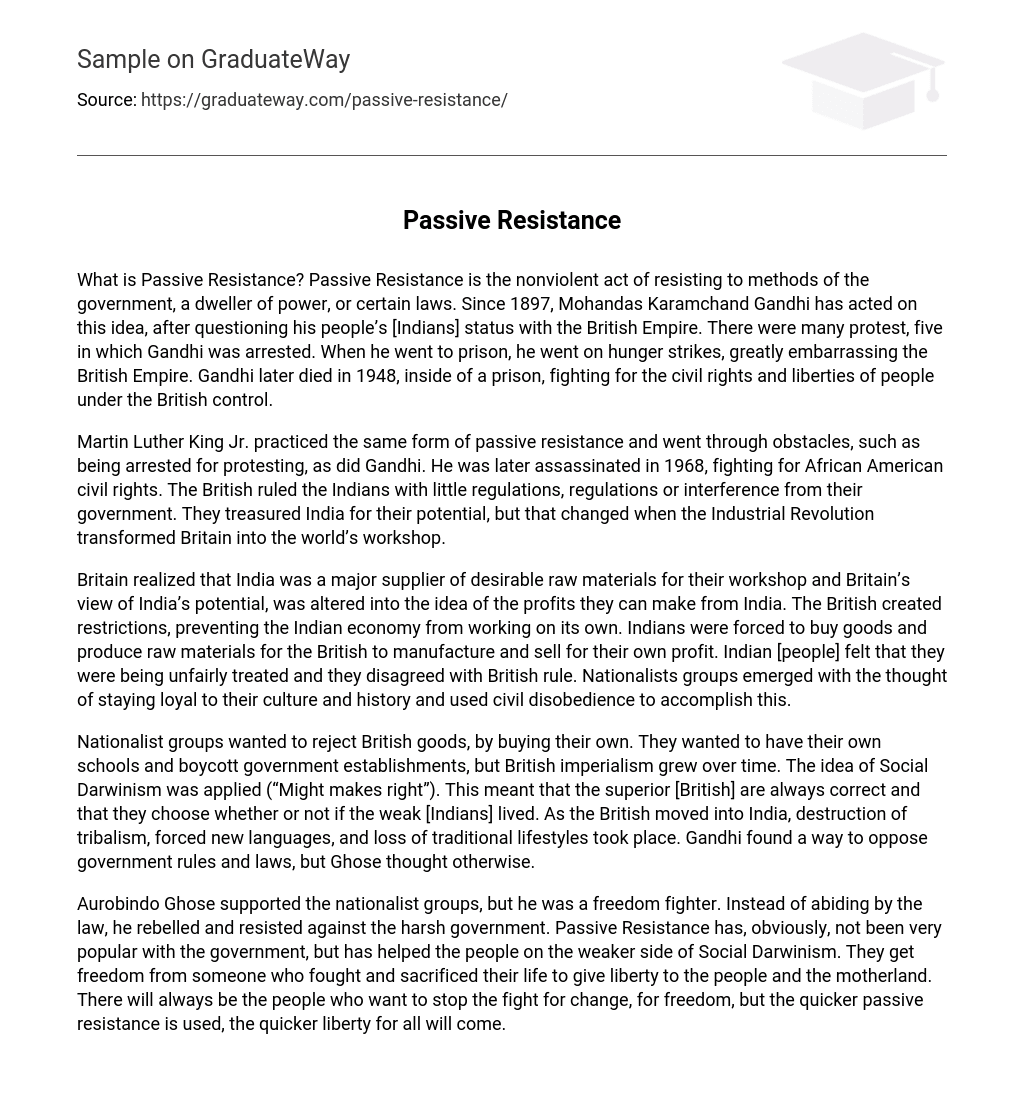Passive Resistance is the act of nonviolently resisting methods of the government, a person in power, or specific laws. Mohandas Karamchand Gandhi embraced this concept in 1897 when he questioned the status of Indians under British rule. Gandhi participated in numerous protests, resulting in his arrest on five occasions. While imprisoned, he conducted hunger strikes that greatly humiliated the British Empire. Gandhi ultimately passed away in 1948 while still incarcerated, tirelessly advocating for the civil rights and freedoms of individuals living under British control.
Both Martin Luther King Jr. and Gandhi utilized passive resistance as a means of fighting against obstacles and injustices. King faced arrests during protests while advocating for African American civil rights until his assassination in 1968. Similarly, the British initially governed India with minimal regulations or interference, recognizing its potential. However, this changed with the advent of the Industrial Revolution, which transformed Britain into a global powerhouse.
Britain recognized that India was a significant source of valuable raw materials for their industries, which led them to shift their perspective on India’s potential towards the idea of generating profits from it. The British enforced limitations that hindered the independent functioning of the Indian economy. Indians were compelled to purchase goods and supply raw materials for British manufacturing and sales, solely benefiting the British. Indian individuals perceived this treatment as unjust and opposed British governance. Nationalist groups emerged with the aim of preserving their culture and history, employing civil disobedience as a means to achieve this.
Nationalist groups aimed to boycott British goods and promote the consumption of their own products. They also desired to establish their own educational institutions and boycott government establishments. However, British imperialism gradually gained strength, implementing the concept of Social Darwinism which emphasized British superiority. According to this concept, the fate of weaker individuals, in this case Indians, was determined by the superior power. The British presence in India led to the destruction of tribalism, imposition of new languages, and erosion of traditional ways of life. Gandhi devised resistance methods against government rules and laws while Ghose held a contrasting perspective.
Aurobindo Ghose, a freedom fighter, provided support to nationalist groups while actively rebelling against and resisting the harsh government, rather than adhering to the law. Although Passive Resistance has not been widely accepted by the government, it has proven beneficial for individuals at a disadvantage within the framework of Social Darwinism. Such individuals attain freedom through the efforts and sacrifices of those who fought for the well-being of both the people and the motherland. There will always exist individuals opposing efforts for change and freedom. However, prompt utilization of passive resistance will expedite the achievement of liberty for all.





